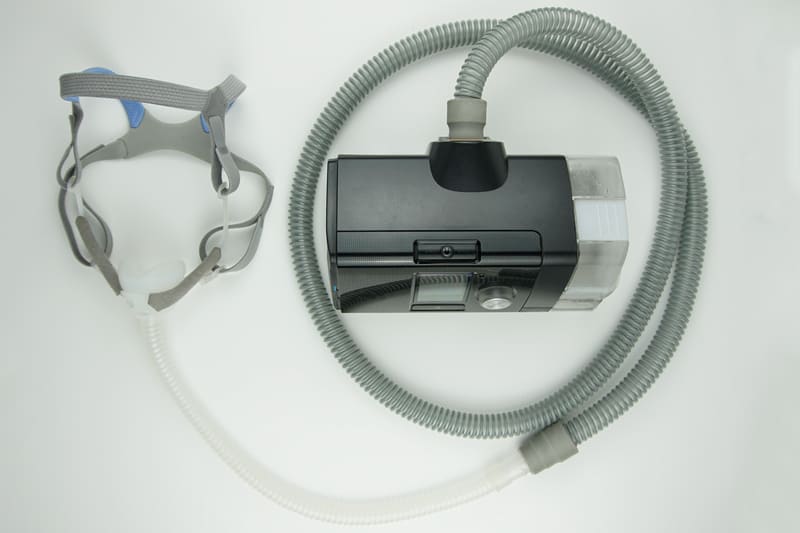
Who would think sleep can be so difficult? Why is it so challenging to find the help you need when it comes to something as fundamental as sleep? As someone who has encountered numerous patients sharing their unfortunate experiences within the healthcare system, I’ve come to realize that two key factors contribute to these sleep-related struggles.
- Low reimbursement rates from insurance companies
- Knowledge gap of healthcare professionals
We will delve into the obstacles that hinder access to adequate sleep support and the critical link between poor sleep, sleep apnea, and overall health. We’ll shed light on the consequences of sleep-related issues and explore the need to raise awareness and prioritize finding effective solutions for optimal patient outcomes. Additionally, we’ll discuss the importance of comprehensive education for healthcare professionals, especially Respiratory Therapists, in tackling sleep-related matters. Lastly, I’ll introduce self-directed online courses that aim to empower individuals with the knowledge and strategies needed to conquer their sleep challenges and embrace a well-rested life.
The Impact of Low Reimbursement Rates:
One of the significant roadblocks to accessing adequate sleep support lies in the low reimbursement rates from insurance providers. This financial constraint has forced Home Medical Equipment (HME) and Durable Medical Equipment (DME) suppliers, as well as clinical offices, to cut costs by hiring lower-paid and often untrained employees. Consequently, the level of care and support provided to patients facing sleep-related issues has suffered.
It’s disheartening to witness the detrimental effects of cost-cutting measures on the overall patient experience. When sleep becomes compromised, it can lead to a range of physical and mental health issues, such as chronic fatigue, mood disturbances, and impaired cognitive function. By neglecting proper support and care for sleep-related problems, we risk exacerbating existing health conditions and reducing individuals’ quality of life.
Addressing the Knowledge Gap:
As a manager in this field, it is difficult to find and hire people that have working knowledge and the skills needed to work with this client base. This extends to the office staff of many of the doctors that I have worked with. Sleep medicine is a specialized field with unique challenges that demand specific expertise. However, many Respiratory Therapists receive limited training in sleep-related matters, resulting in a knowledge gap that directly affects the quality of patient care.
By addressing this knowledge gap and providing healthcare professionals with comprehensive sleep education, we can enhance patient outcomes significantly. Sleep plays an integral role in maintaining overall health, and understanding the intricacies of sleep can help in delivering effective and targeted care. Plus cut medical spending.
The Critical Link Between Poor Sleep and Overall Health:
Only in recent years has the medical community started recognizing the profound impact of poor sleep and sleep apnea on overall health. The consequences of untreated sleep-related issues can be severe and far-reaching. Apart from the immediate effects of sleep deprivation, such as impaired concentration and reduced productivity, long-term consequences may include an increased risk of developing chronic conditions like hypertension, diabetes, and cardiovascular diseases.
This critical link between sleep health and overall well-being emphasizes the urgent need for a holistic approach to healthcare. Sleep should no longer be relegated to the background but should instead be integrated into routine medical assessments and treatment plans. By prioritizing sleep health, we can potentially prevent or alleviate many health issues, leading to improved patient outcomes and a healthier population overall.
Empowering Individuals Through Knowledge and Strategies:
Over the course of my career, working with numerous clients facing sleep-related challenges, I realized that effective strategies and comprehensive education play a pivotal role in overcoming sleep struggles. To bridge the gap and empower individuals with the tools they need to conquer their sleep issues, I’ve developed self-directed online courses.
These courses offer invaluable insights into the world of sleep, providing a deeper understanding of sleep apnea, insomnia, and other sleep disorders. Participants will learn practical strategies to improve their sleep hygiene, manage stress, and create an ideal sleep environment. Moreover, the courses will highlight the significance of seeking professional help, including the benefits of PAP therapy and other treatment options.
Sleep should never be taken for granted, nor should the struggle to obtain help for sleep-related issues be ignored. By acknowledging the impact of low reimbursement rates and addressing the knowledge gap among healthcare professionals, we can work towards a future where sleep health is prioritized and integrated into routine medical care.
Raising awareness about the critical link between poor sleep and overall health is vital for promoting better sleep practices and ensuring optimal patient outcomes. The path to restful nights may have its challenges, but with the right knowledge and strategies, we can empower individuals to conquer their sleep struggles and embrace a well-rested life.
Health is your personal journey and it will take you on many paths. Some are a highway to feeling better, most are more like a slow curving path up a mountain. But worth the effort.


